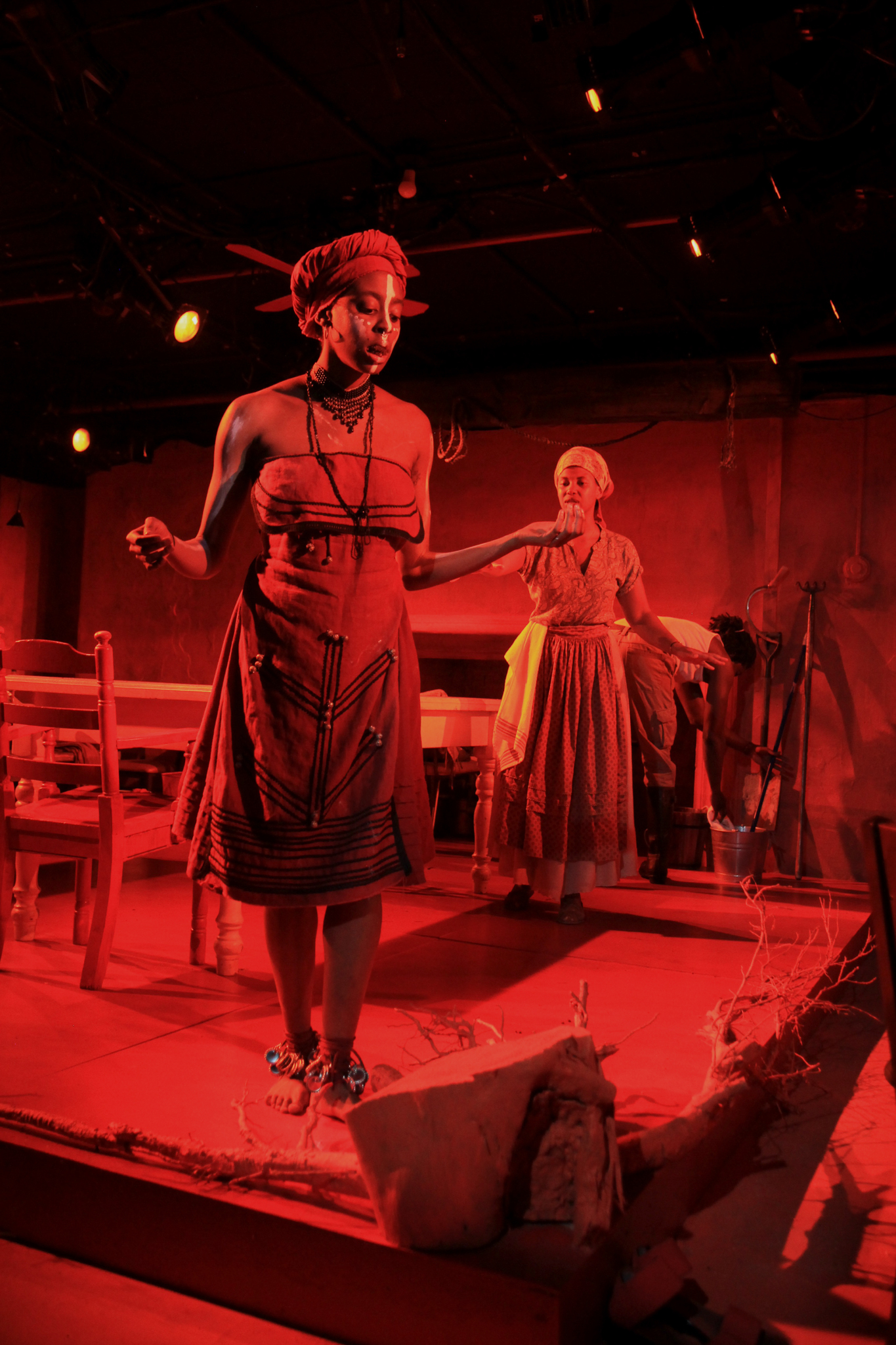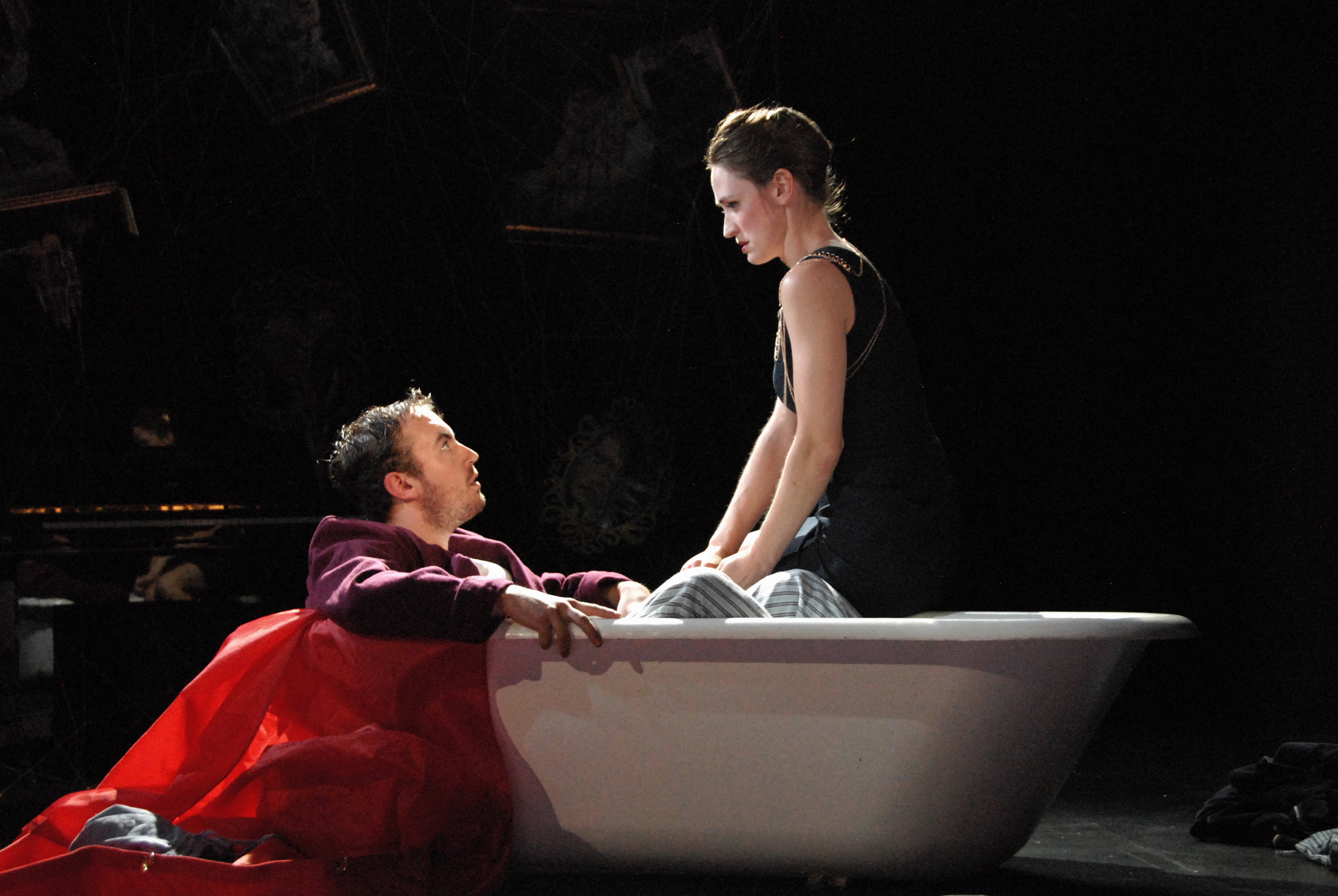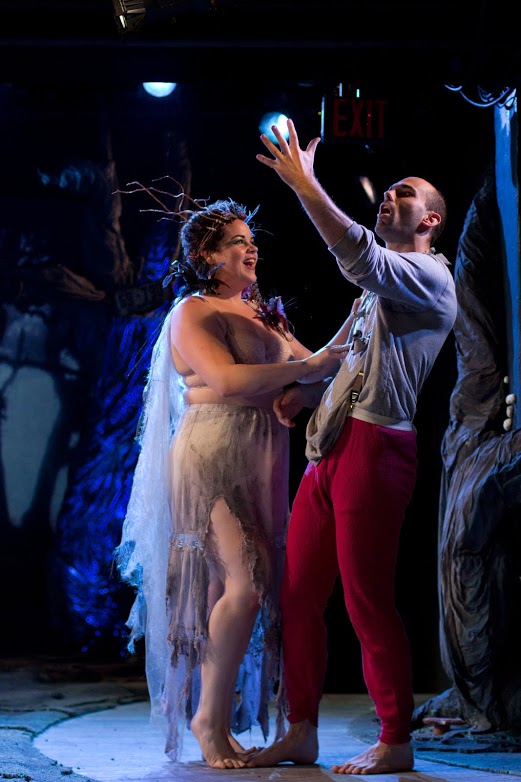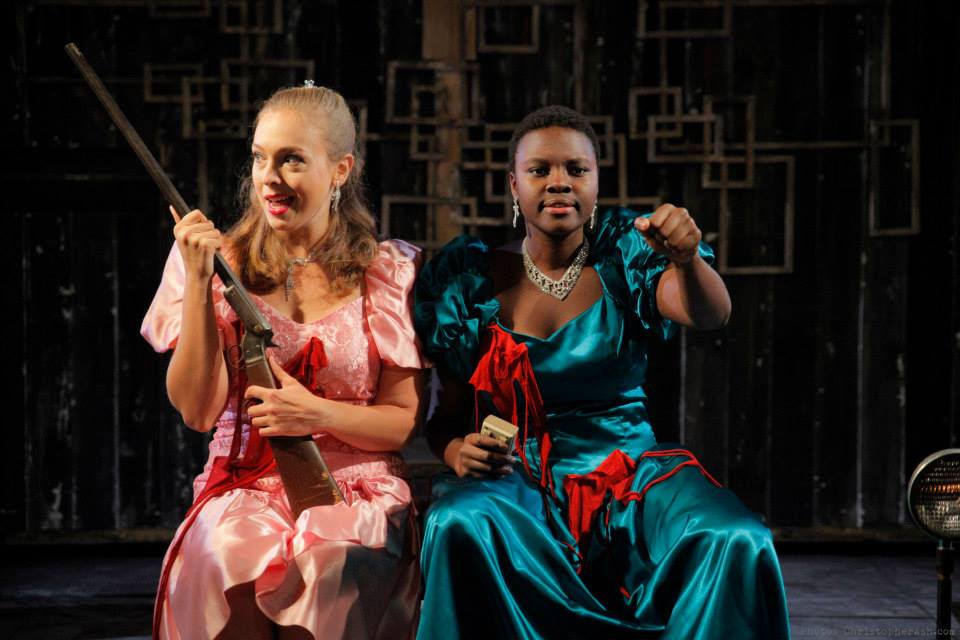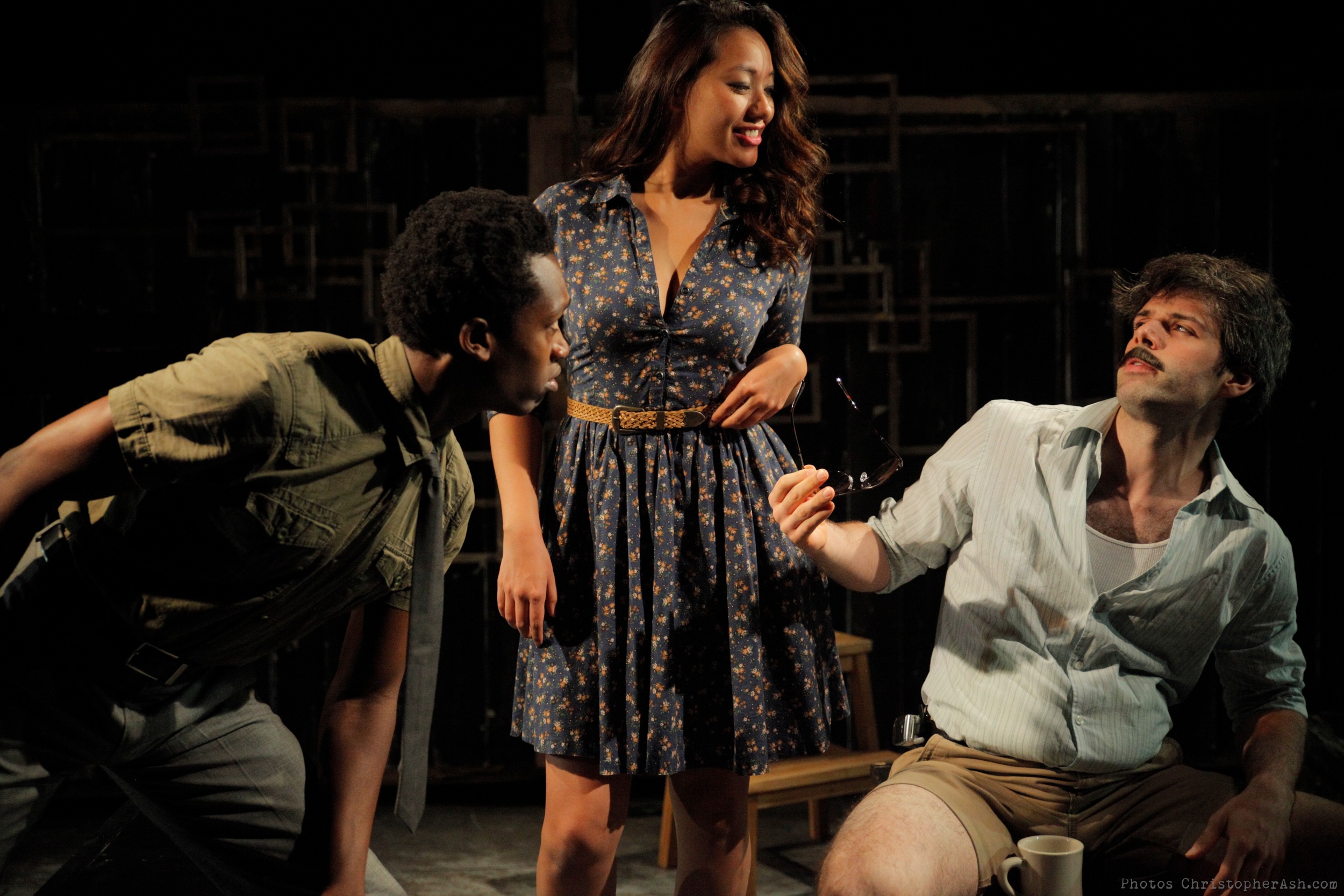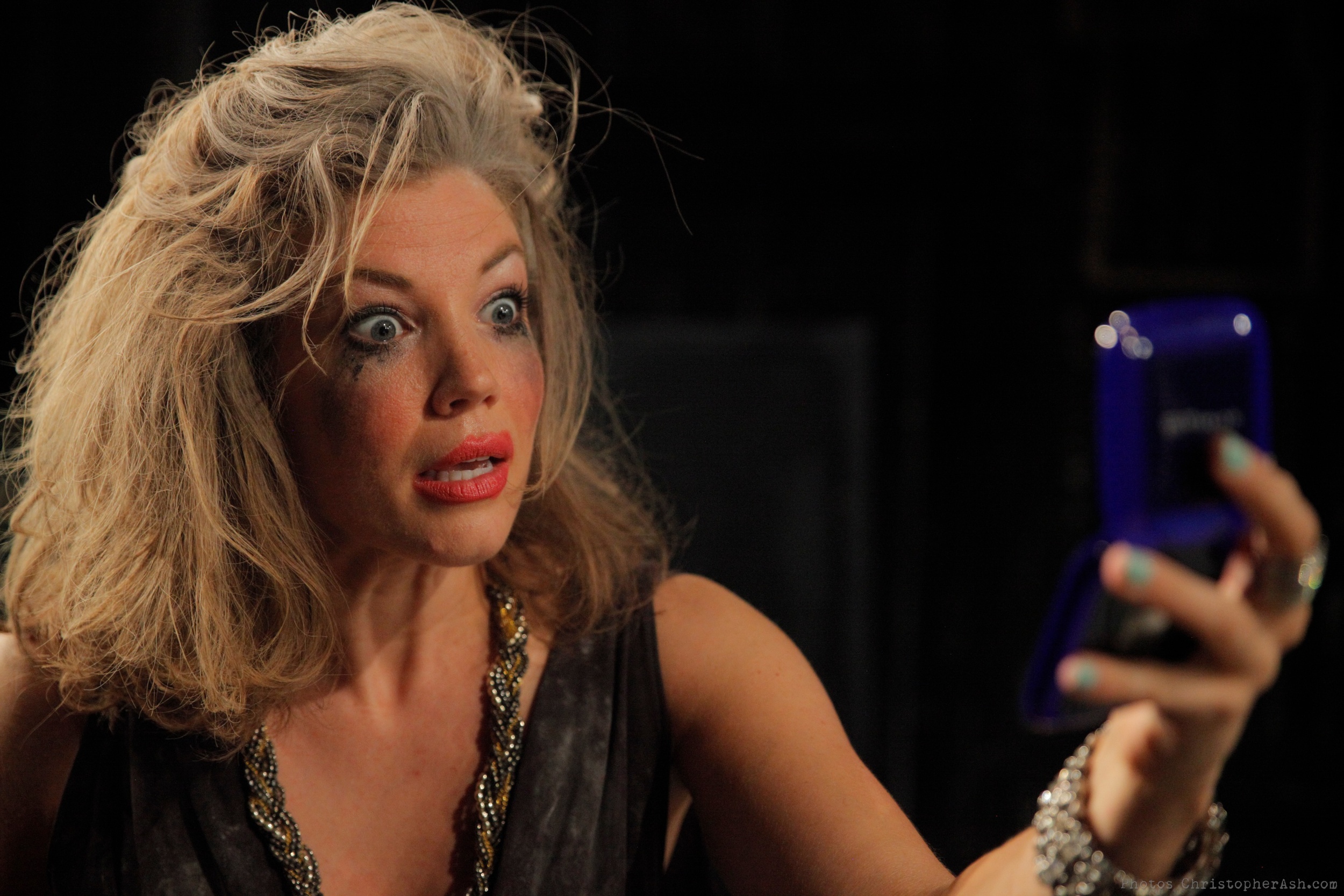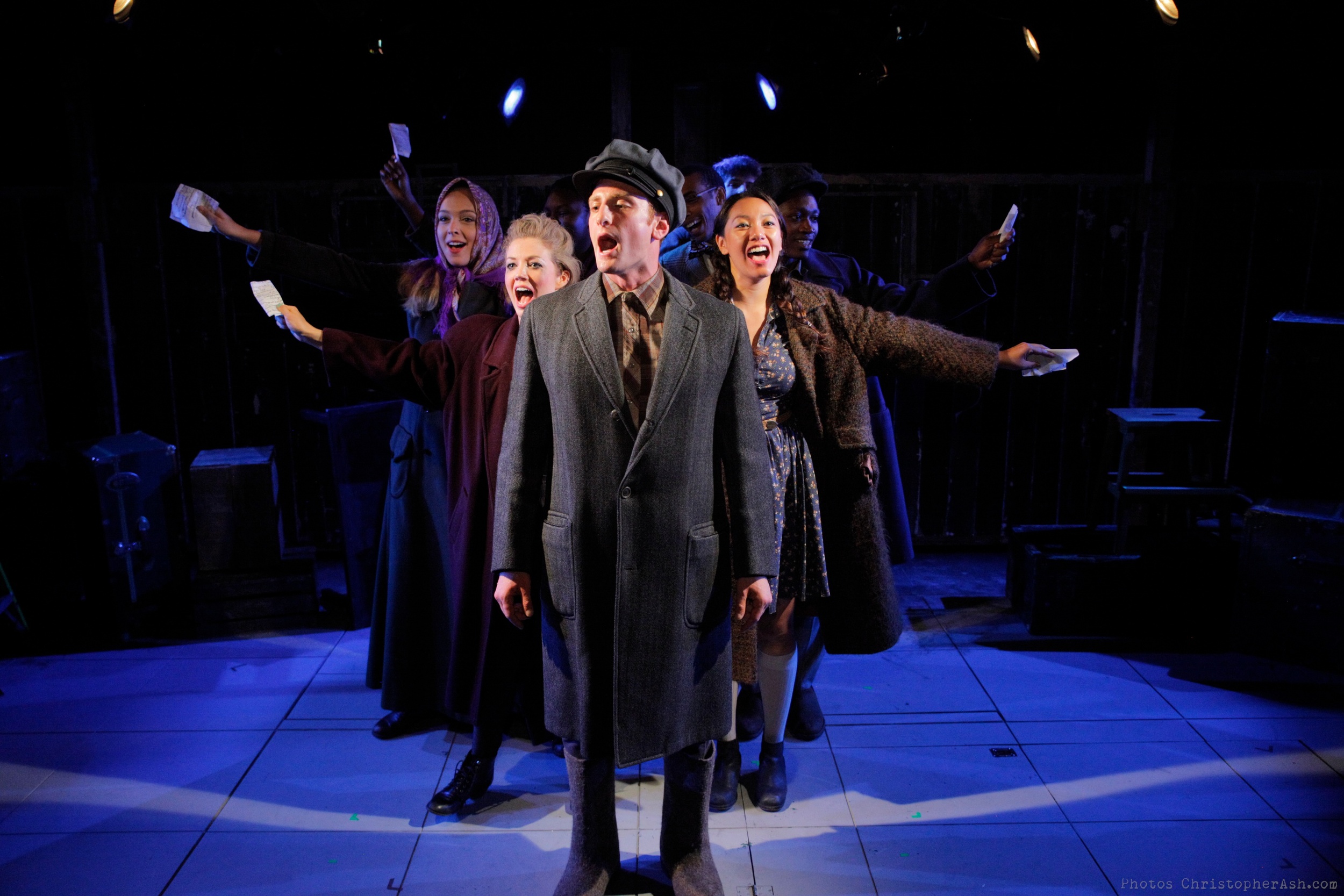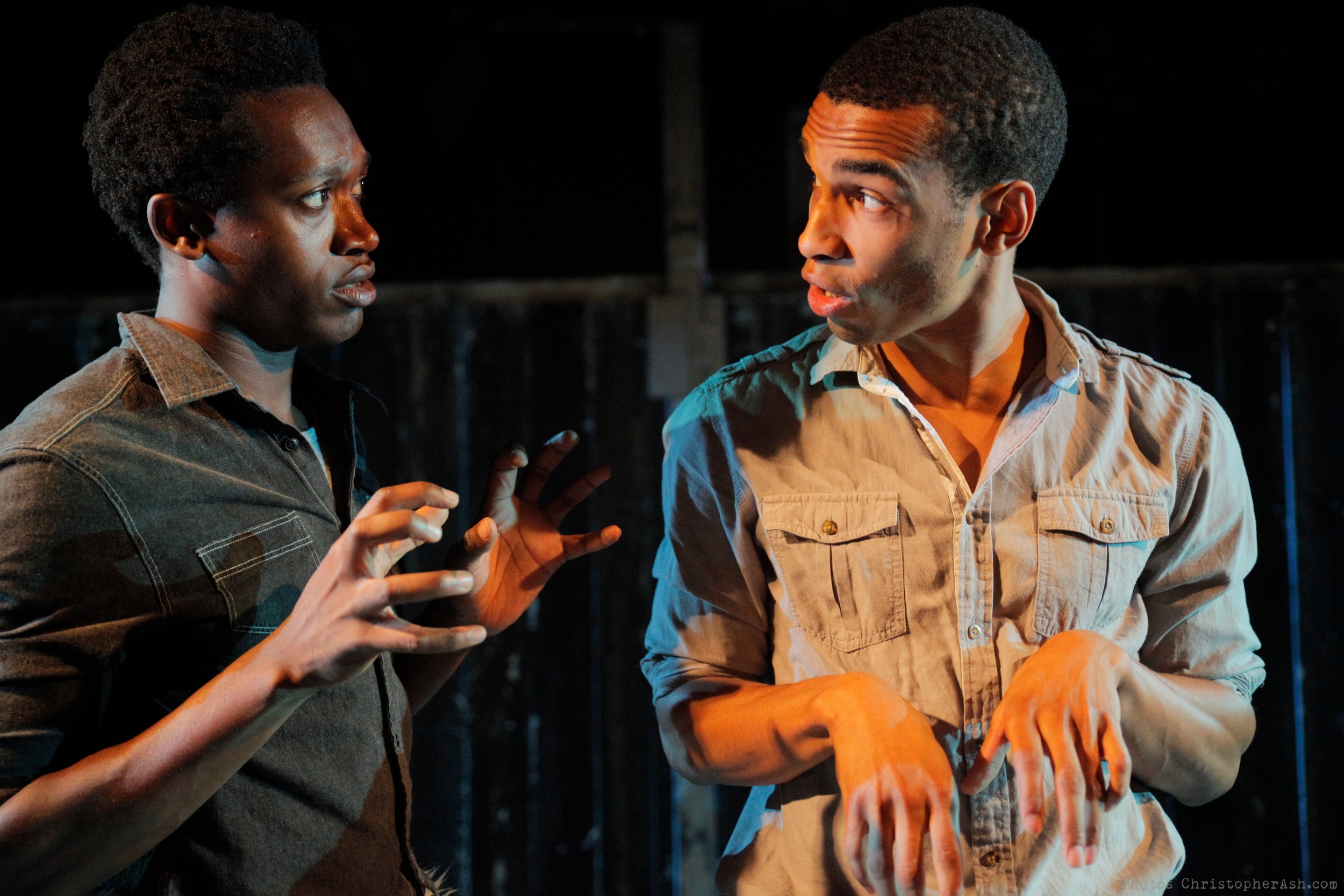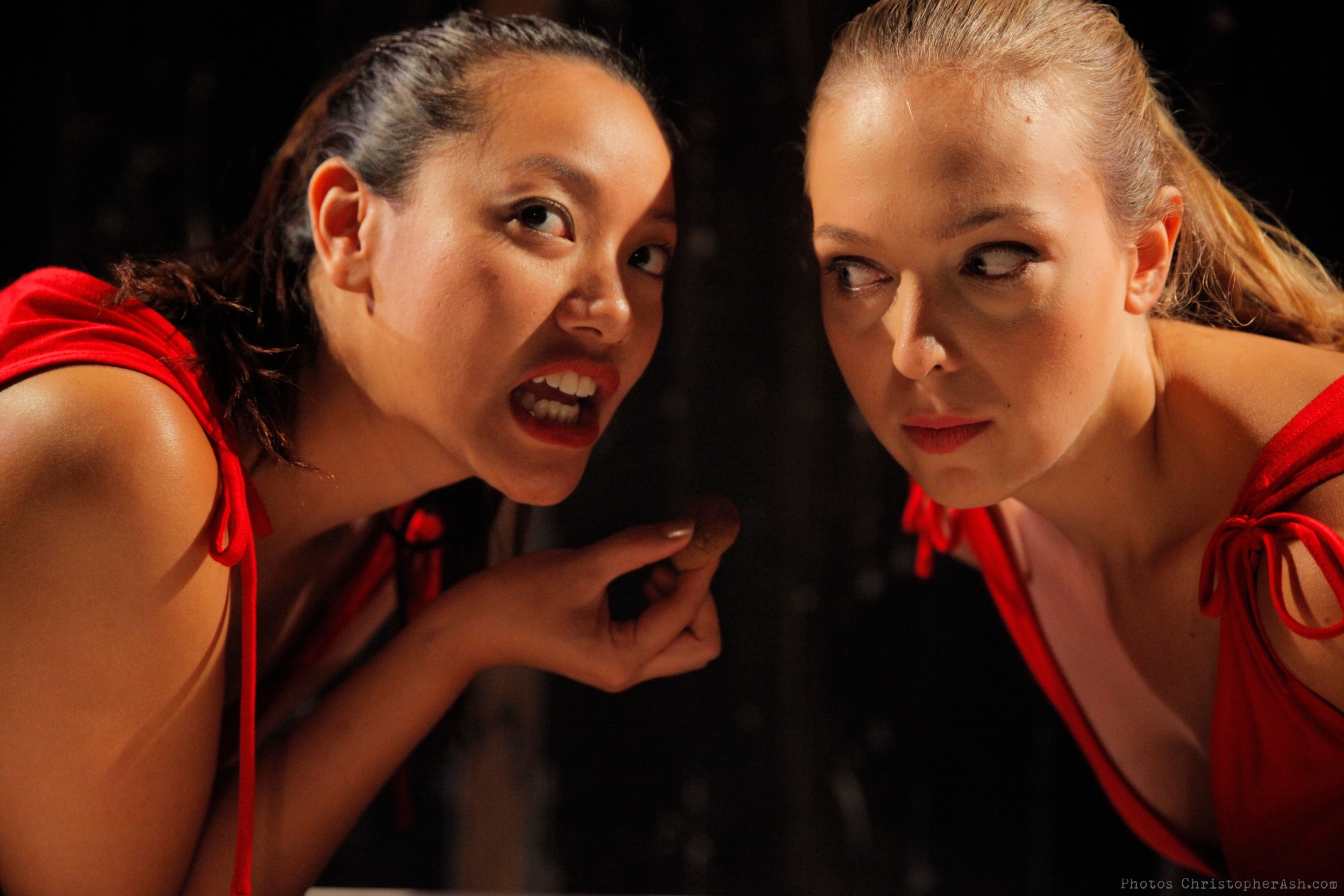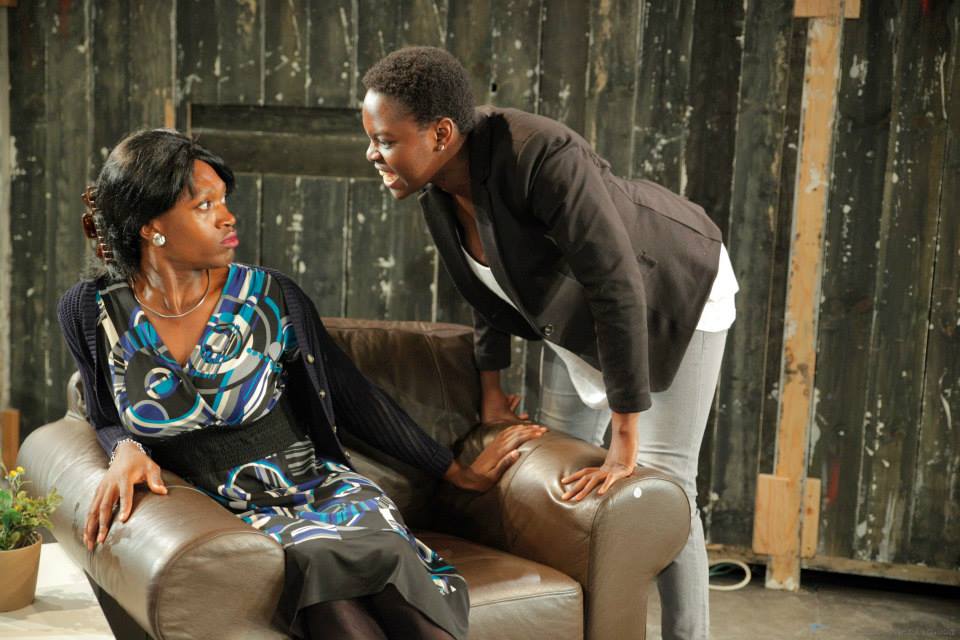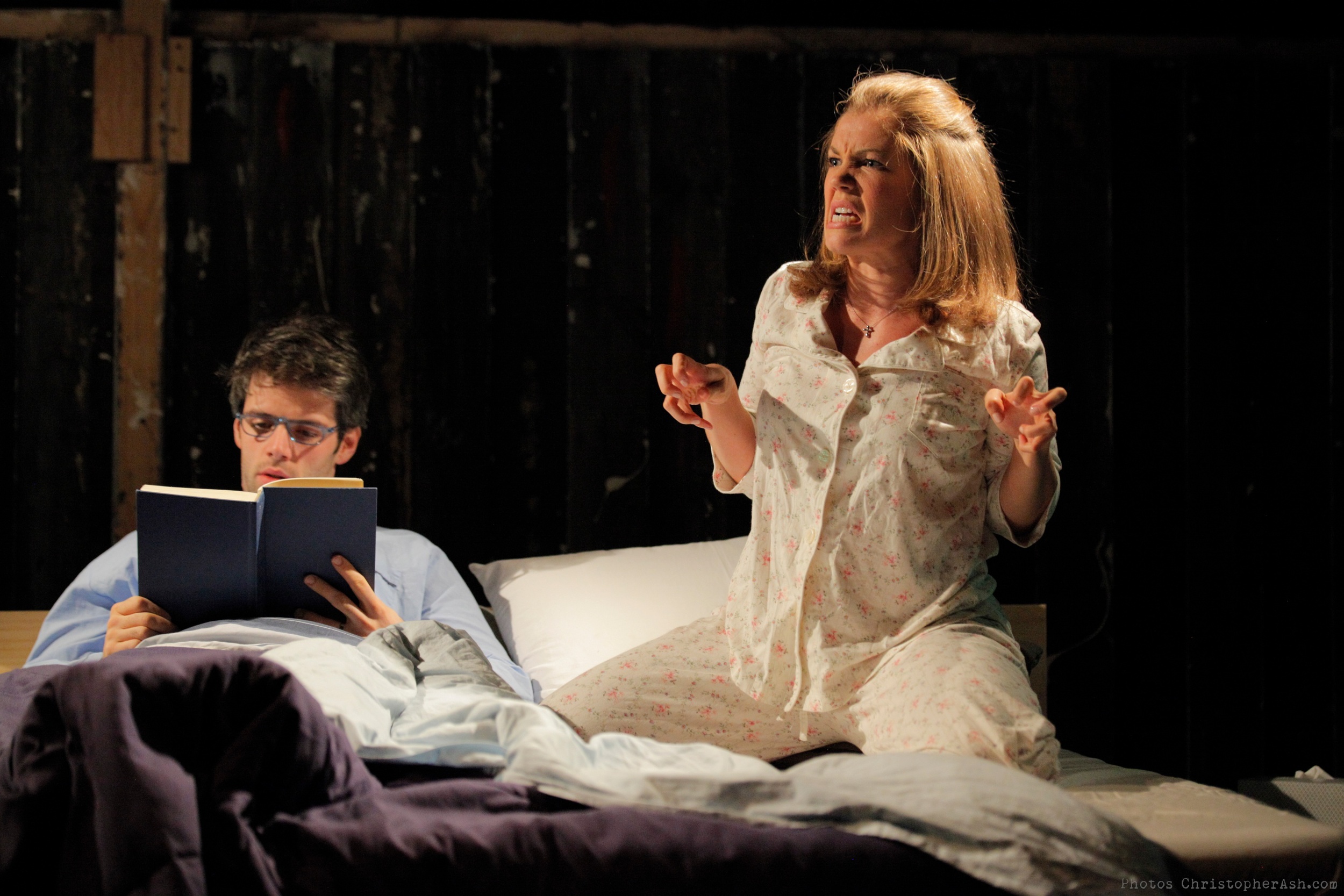Review of Lear, Yale Summer Cabaret
In keeping with their practice of featuring revisions and revamps of canonical plays, Yale Summer Cabaret’s Canon Balle season ends with a bang and a ball. Young Jean Lee’s Lear is a fascinating and disarming take on Shakespeare’s King Lear poised, after a fashion, from the point of view of the younger generation.
People generally know that Goneril (Francesca Fernandez McKenzie), Regan (Danielle Chaves), and Cordelia (Amandla Jahava) are the daughters of King Lear in Shakespeare’s most demanding play. And they should know that Edgar (Stephen Cefalu, Jr.) and Edmund (Jake Ryan Lozano) are the two sons, legitimate and illegitimate, respectively, of Lear’s chief counselor Gloucester. The other key plot point is that Goneril, Regan and Edmund abuse the older generation and that the two good children are disowned: Cordelia goes off to France after displeasing her father and Edgar takes on a disguise to try to help his father in the dire circumstances. What Young Jean Lee’s Lear shows you that you may not know about these characters is abundantly amusing, disconcerting, and, in the end, touching.
Edgar (Stephen Cefalu, Jr.) (photo: Elsa Gibson Braden)
Directed by this very successful Summer Cabaret season’s co-artistic director Shadi Ghaheri, Lear intrigues even before anyone comes on stage. Stephanie Osin Cohen's diagonal set is established against one wall of the Cabaret space like a storefront window display in which we see what look to be the wares of a baroque SoHo boutique: a vanity, a dais with throne, a chair in the shape of a hand, all illuminated in a purplish pink that suggests a decadent and modernistic Louis Quatorze era. There’s also a giant flatscreen TV.
Regan (Danielle Chaves), Goneril (Francesca Fernandez McKenzie) (photo: Elsa Gibson Braden)
Then the characters arrive, clad in Sophia Choi's trippy baroque garb—complete with wigs like towers of intricate confection and a day-glo palette—to dance a little gavotte. Edmund and Edgar, though still not on the same page, seem to have joined the court of the sisters Regan and Goneril, and together they prey upon each other’s insecurities while trying to justify their acts, their tastes, their selfishness, and the kinds of things that would be at home in an existential play about how to cope with the boredom of being. Meanwhile, the brothers battle each other in a video game and each character gets a soliloquy to apprise us of the general anomie. They speak in a heightened and absurdist manner that abounds in non sequitur, odd asides, wry guts-spilling, and, at one point, dolphin-talk.
Edgar (Stephen Cefalu, Jr.), Edmund (Jake Ryan Lozano) (photo: Elsa Gibson Braden)
Eventually Cordelia returns to the fold, and shows herself to be steely enough to deal with her sisters. Meanwhile Edmund and Edgar battle each other in hilariously juvenile terms. Lee doesn’t seem to think much about the dignity and maturity of the generation she takes to task, but, oddly, the script doesn’t seem mean-spirited, which has much to do with the earnestness of the speakers. Each member of the cast adds to a spirited ensemble able to follow this mercurial play wherever it goes, whether to Cefalu’s nicely understated and deliberately awkward breaking of the play’s fiction for the reality of our viewing experience, or to Sesame Street and an appearance by a beloved TV personality, enacted with unironic panache by Lozano.
Cordelia (Amandla Jahava), Lear (Francesca Fernandez McKenzie) (photo: Elsa Gibson Braden)
Particular mention as well of Francesca Fernandez McKenzie who plays up the mannequin-like perfection of the imperious Goneril in the early going, then transforms startlingly into a mimicry of her father at his most peremptory, and, after yet another transformation, undertakes the great final speech Shakespeare gave his more sinned against than sinning creation. It takes guts to drop towering pathos into a casual conversation and that’s what Lee’s text demands. Much as it demands a potentially mawkish scene late in the play and a final soliloquy from the actor playing Edmund—here Jake Ryan Lozano—that reads like a personal comment from the playwright herself.
And if all that isn’t enough to keep you laughing and wondering and guessing, and maybe even sniffling, there are Yaara Bar’s adventurous projections that feature holograms of the actresses’ faces, as well as appropriate footage, whether of computer-generated dolphins or race cars wiping out. Such touches—including garish lighting and a varied soundscape—constitute innovations on the part of this production, showing that Ghaheri and Canon Balle are not only in the business of revamping classics; they’re also quite willing to take liberties with contemporary works. The tech design is amazing but never overpowering.
Some might wonder how a play as powerfully achieved as King Lear benefits from passing through the eye of Ionesco, and if Lee were simply goofing on Shakespearean sublimity, I might wonder as well. Instead, she has the presence of mind to conflate a father agonizing that his child will never come again with a child learning that even people on TV die. The readiness is all.
Lear
Written by Young Jean Lee
Directed by Shadi Ghaheri
Production Dramaturg: Ariel Sibert; Scenic Design: Stephanie Osin Cohen; Costume Design: Sophia Choi; Lighting Design: Krista Smith; Sound Design: Tye Hunt Fitzgerald; Projections Design: Yaara Bar; Stage Manager: Caitlin O’Rourke; Associate Sound Design: Kathy Ruvuna
Cast: Stephen Cefalu, Jr., Danielle Chaves, Amandla Jahava, Jake Ryan Lozano, Francesca Fernandez McKenzie
Yale Summer Cabaret
August 4-13, 2017





